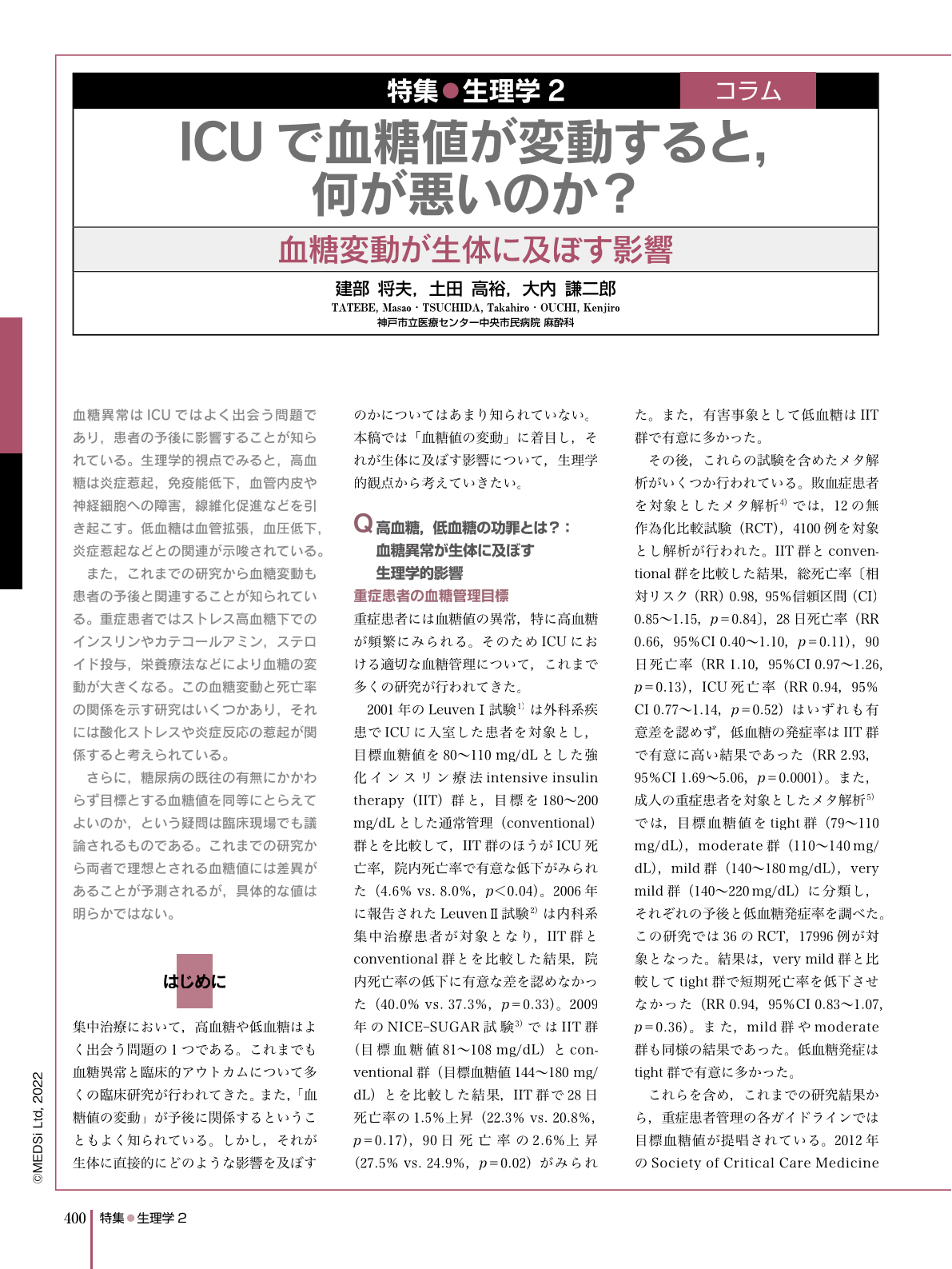Japanese
English
- 有料閲覧
- Abstract 文献概要
- 1ページ目 Look Inside
- 参考文献 Reference
血糖異常はICUではよく出会う問題であり,患者の予後に影響することが知られている。生理学的視点でみると,高血糖は炎症惹起,免疫能低下,血管内皮や神経細胞への障害,線維化促進などを引き起こす。低血糖は血管拡張,血圧低下,炎症惹起などとの関連が示唆されている。
また,これまでの研究から血糖変動も患者の予後と関連することが知られている。重症患者ではストレス高血糖下でのインスリンやカテコールアミン,ステロイド投与,栄養療法などにより血糖の変動が大きくなる。この血糖変動と死亡率の関係を示す研究はいくつかあり,それには酸化ストレスや炎症反応の惹起が関係すると考えられている。
さらに,糖尿病の既往の有無にかかわらず目標とする血糖値を同等にとらえてよいのか,という疑問は臨床現場でも議論されるものである。これまでの研究から両者で理想とされる血糖値には差異があることが予測されるが,具体的な値は明らかではない。
Many patients have glycemic disorders in the ICU, and it is known that glycemic disorders affect their prognosis. Physiologically, hyperglycemia induces an inflammatory reaction, blunting of the immune response, disorders of endothelial and neural cells and promotion of fibrogenesis. Hypoglycemia causes vasodilation, hypotension and an inflammatory reaction. Previous studies suggest that glycemic variability is associated with prognosis. Glycemic variability in critically ill patients who have stress hyperglycemia are affected by insulin, catecholamines, steroids and nutritional intervention. Several studies suggest that glycemic variability is associated with increased mortality due to oxidative stress and induction of an inflammatory reaction. We may be confronted with the clinical question of whether a common glycemic target is better for all patients regardless of a previous history of diabetes mellitus. Previous studies suggest that the optimal blood glucose level is different among these groups of patients, though the exact appropriate level is not clear.

Copyright © 2022, MEDICAL SCIENCES INTERNATIONAL, LTD. All rights reserved.


